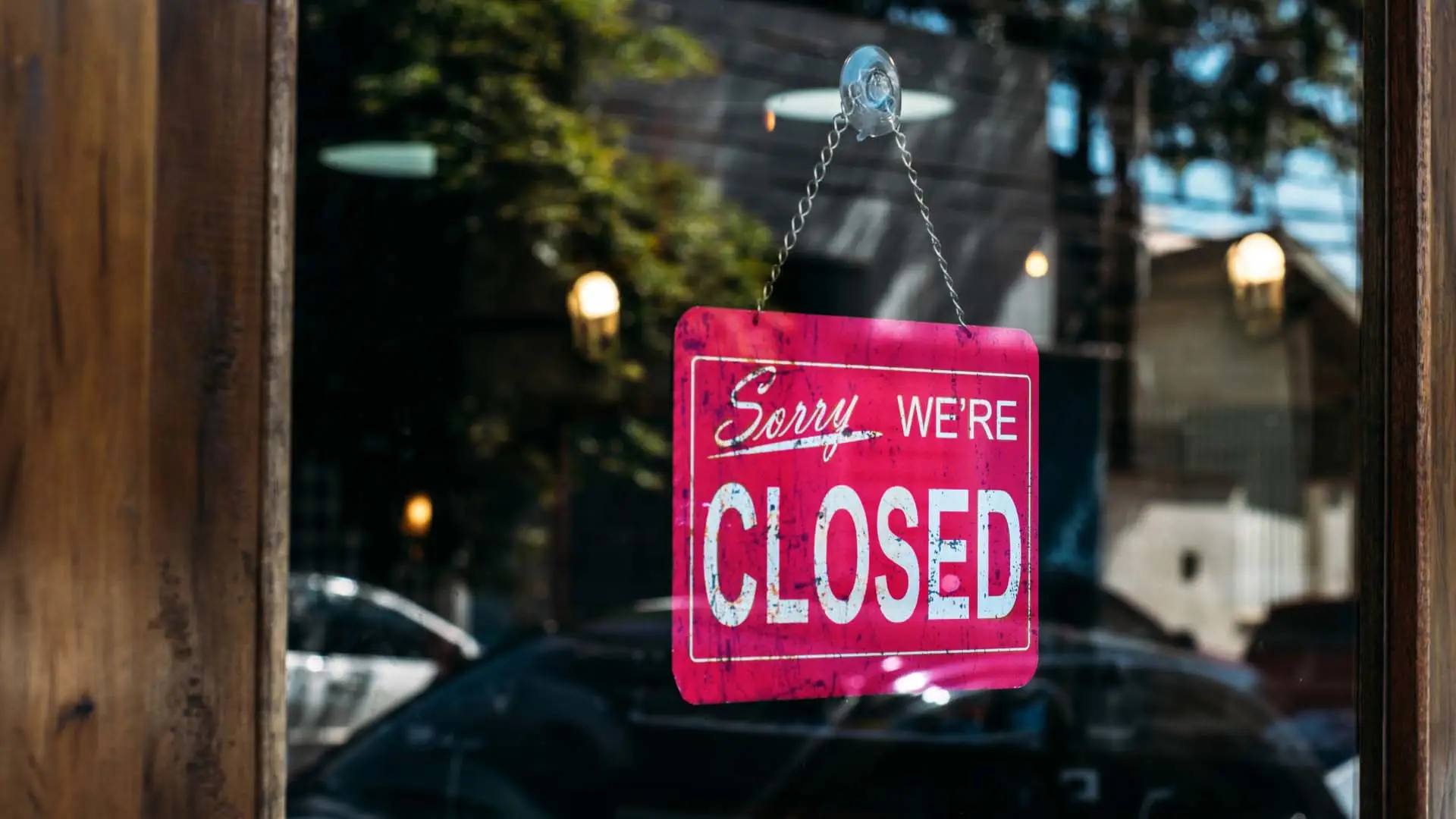As the coronavirus (COVID-19) pandemic continues to impact the health of Canadians, it is also having a substantial impact on many hundreds of thousands of businesses across the country.
At the time of writing, the Ontario government has instigated a full lockdown of ‘non-essential’ businesses effective from Tuesday, March 24 at 11:59pm. This follows on from previous advice to businesses in which many thousands had already reduced hours, limited services or closed their doors (hopefully temporarily).
The majority of businesses cannot afford to continue paying rent, salaries and other costs without an income for any sustained period of time, and will be looking for support and aid from a wide range of sources.
One question that many business owners will be asking is: Does my insurance provide any coverage for lost revenue through a forced closure?
As you might expect, this is a highly fluid situation and insurance companies are developing their specific answers to these questions as we write. It’s therefore impossible to definitively say “yes” or “no”, but we wanted to give you some insights based on what the majority of business insurance products were designed to protect.
Most business insurance policies include coverage for property, general liability, and in many cases, professional liability. Here’s how each of these might come into play as a result of this coronavirus pandemic:
Property insurance – Including business interruption coverage
This product is primarily designed to insure you for loss or damage to your property as a result of things like fire, water or natural catastrophes. It covers any buildings you own, upgrades you might make as a tenant, and any business contents, e.g. furniture, equipment etc.
One important feature of property insurance is called business interruption coverage. This is also sometimes referred to as “loss of earnings”, “loss of profits”, “loss of rent” or “extra expense”. Many businesses are asking if this coverage will be triggered by a forced closure of your business due to the coronavirus, and if insurers will therefore pay some or all of the associated costs?
“The forced closure of your business due to the coronavirus is unlikely to meet the conditions for a business interruption claim.”
The general answer to this question is “no”. Business interruption coverage was designed to trigger only if a business cannot operate as normal as a result of an insured physical damage loss under the property policy. For example, if your business had a substantial fire, and was forced to close for a period of time, then your insurer would typically reimburse you for lost earnings, rental income and other expenses you incurred as a result of trying to keep your business running as best possible.
Some insurance policies, typically for larger and more complex businesses, might include coverage for “infectious disease”, which may provide coverage for the current situation where government has mandated closures due to the outbreak. This is unlikely to be included or available in the majority of business insurance policies.
This situation is continually evolving, and insurers are making their positions clear on business interruption coverage, but our emerging view is that the forced closure of your business due to the coronavirus is unlikely to meet the conditions for a business interruption claim. For more specific guidance here, please discuss with your insurance broker.
Commercial general liability insurance (CGL)
Simplistically speaking, your CGL policy protects you in the event that you are held legally liable by a third party for bodily injury or property damage. For example, if a customer trips over an unsecured power cable in your store, falls and breaks their leg, your CGL policy will cover you for the cost of your legal defense and any financial settlement that is agreed upon.
A typical CGL policy would not cover you for any loss of income or revenue due to a pandemic-related shutdown, whether it is government-imposed or otherwise.
“A typical CGL policy would not cover you for any loss of income or revenue due to a pandemic-related shutdown, whether it is government-imposed or otherwise. However, there are other scenarios that might come into play here, such as where one of your customers could allege that they caught COVID-19 at your business property and suffered losses as a result.”
However, there are other scenarios that might come into play here, such as where one of your customers could allege that they caught COVID-19 at your business property and suffered losses as a result.
In this scenario, your CGL policy may respond to this loss and defend you. Each insurance company’s policy is different in this regard and some policies will include specific exclusions around “organic pathogens”. If your business is implicated in such a claim, our advice is to reach out to your broker to discuss the specifics of your policy.
Professional liability or errors & omissions insurance (E&O)
In a similar fashion to a CGL policy, an Errors & Omissions policy is designed to protect your business from claims made by a third party for damages arising out of a failure of your professional duties. As an example, if you are a business consultant and provide advice (or fail to provide advice) which leads to substantial and otherwise predictable losses for your client, your E&O would cover your legal defense and any financial settlements that are agreed upon.
Your E&O insurance is therefore not designed to cover any direct losses that your business may suffer as a result of the COVID-19 shutdown. However, if one of your clients makes a claim against you alleging professional negligence which led to losses for them as a result of COVID-19, then your policy may respond and you should discuss this with your insurance broker.
We can see above that while the three most common types of business insurance may provide coverage for some aspects of the COVID-19 pandemic, they are unlikely to cover any losses arising from loss of income as a result of a government-mandated or voluntary shutdown. We want to re-iterate that it is impossible to provide a definitive answer to such a broad question without specific knowledge of your individual business’ circumstances and that you should speak with your broker for more clarity.
Get a business insurance quote in minutes.
Contingent business interruption insurance
Contingent business interruption insurance is designed to compensate your business for lost revenues and income due to failures outside of your business, e.g. failures of your supply chain, or damage to a neighbouring property that doesn’t allow your customers to reach you for a number of days.
While this coverage does not require physical damage to your property in order to trigger, it does typically require physical damage to contingent property, e.g. your neighbour, which would have typically been insured if it had happened to your property, in order to meet payment conditions.
“it is unlikely, but not impossible, that you will have coverage relating to a COVID-19 business closure from this section of your policy.”
Contingent business interruption is not common in the majority of small business insurance packages, and the specific nature of coverage offered will differ amongst insurers. We therefore believe that it is unlikely, but not impossible, that you will have coverage relating to a COVID-19 business closure from this section of your policy.
Directors & officers liability insurance
Directors & officers liability (D&O) insurance protects a company and its individual directors & officers against lawsuits arising out of their actions (or inactions). It is not typically designed to deal with claims arising out of bodily injury (which would be more appropriately dealt with under your commercial general liability policy).
As the situation evolves over the next several months, questions could arise as to whether the leadership of particular organizations took the necessary actions to keep premises and their employees safe as news and information about COVID-19 emerged. However, at the time of writing, it is likely far too early to predict whether claims will be made against the leaders of any organizations around their leadership before or during this pandemic, or whether insurers will respond to those claims.
Cyber insurance
Many businesses buy cyber insurance these days to protect themselves from liability if their clients’ personally identifiable information is hacked, and to keep their businesses running in the event of cyber crime or other bad actors interfering with their systems or network.
The main implication of cyber Insurance when it comes to this COVID-19 pandemic, is that sadly, criminals are increasingly targeting employees of businesses that work from home.
This scenario creates increased vulnerabilities for cyber crime (e.g. phishing attacks) as staff are isolated and unsure how to react to new situations. Employees using their own personal computers, laptops or devices to access your company’s data may also bring increased risk as you may not have protected their personal equipment in the same way that you would your company’s equipment.
“Given the increased cyber risk involved, we recommend notifying your broker if your staff need to continue working from home for an extended period of time, in order to ensure that your coverage remains suitable.”
As it stands in the early days of this pandemic, cyber insurers understand and expect that businesses will have increased levels of working from home. Given the increased cyber risk involved, we recommend notifying your broker if your staff need to continue working from home for an extended period of time, in order to ensure that your coverage remains suitable.
Over the course of the next few weeks, we will monitor and keep track of this situation as it pertains to businesses across Canada. We will keep you updated as this important situation develops.
Monthly payment deferrals & renewals
The situation here will truly depend on your individual circumstances, but a number of insurers have begun to communicate a willingness to be flexible on insurance payments (monthly or renewal payments) in the event that your business has been directly impacted by the COVID-19 shutdown. Some insurers have also communicated that they will waive NSF (Not Sufficient Fund) fees. If you have a concern about an upcoming monthly payment, please contact your insurer directly.
In all cases, if you are in doubt, please speak with your insurance broker.
Looking for business insurance?
Speak with a Mitch Insurance broker today to get a quote on Ontario business insurance. Learn more >
Call now
1-800-731-2228







